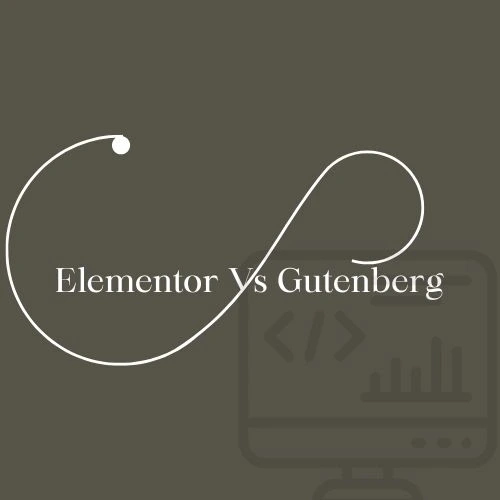Elementor vs. Gutenberg 2025-Choosing the right page builder is crucial for your WordPress website’s success.
As a WordPress developer, one of the most frequent questions I encounter is: “Should I use Elementor or Gutenberg for my next project?” In 2025, this isn’t just a matter of preference; it’s a strategic decision that impacts performance, flexibility, and the long-term maintainability of your WordPress website.
Both Elementor and Gutenberg have evolved significantly over the years, each vying for the title of the ultimate WordPress site builder. But which one truly reigns supreme for your specific needs? Let’s dive deep into a head-to-head comparison to help you make an informed choice.
Understanding the Contenders: A Quick Recap
Before we pit them against each other, let’s briefly define what each editor brings to the table:
- Gutenberg (The WordPress Block Editor): Introduced in WordPress 5.0, Gutenberg is the native block-based editor integrated directly into WordPress core. It aims to revolutionize content creation by allowing you to build pages and posts using “blocks” for everything from paragraphs and images to complex layouts. Its vision extends to Full Site Editing (FSE), enabling you to design every aspect of your site (headers, footers, archives, etc.) using blocks and block themes.This often translates to faster loading times and better Core Web Vitals scores, which are increasingly important for Google rankings in 2025. Less additional CSS and JavaScript mean a leaner website
- Elementor (The Page Builder Powerhouse): Elementor is a popular third-party drag-and-drop page builder plugin. It provides a visual, front-end editing experience, allowing users to design elaborate layouts with pixel-perfect control, extensive styling options, and a vast library of widgets and templates. Elementor Pro further expands its capabilities with a theme builder, pop-up builder, and moreAchieving optimal speed with Elementor often requires careful attention to:Using a lightweight theme (like Hello Elementor),Minifying and combining CSS/JS,Optimizing images,Implementing robust caching.
- Verdict: Gutenberg wins for out-of-the-box performance and a naturally lighter footprint. If speed is your absolute top priority (and it should be for SEO), Gutenberg has the advantage. Elementor can be optimized to perform well, but it requires more effort.
Elementor vs Gutenberg: Feature Comparison (2025 Update)
| Feature | Elementor | Gutenberg |
|---|---|---|
| Ease of Use | Drag-and-drop with live preview | Simpler, but less visual control |
| Design Flexibility | High – Custom layout, animations, etc. | Medium – Limited layout options |
| Speed & Performance | Slower (more code & scripts) | Faster (native WordPress tool) |
| Learning Curve | Moderate | Low |
| Theme Builder | Yes (Pro version) | Not built-in |
| Third-Party Add-ons | Tons available | Fewer, but growing |
| Pricing | Free + Paid Pro Version (Starts $59) | 100% Free |
| Best Use Case | Agencies, Business sites, Landing pages | Blogging, News, Simpler sites |
Use Cases: Which One Should You Choose?
Choose Elementor if:
- You want full control over your website design
- You build websites for clients
- You need custom headers, footers, or popups
- You want animations, sliders, and advanced widgets
Choose Gutenberg if:
- You prioritize speed and simplicity
- You write blogs and publish content often
- You want to keep your site lightweight and plugin-free
- You’re using a block-based theme (like Twenty Twenty-Four)
My Take as a WordPress Developer in 2025
Both tools are excellent — and I’ve used both in real projects.
- For business websites or landing pages: Elementor Pro still leads with its design freedom.
- For content-heavy blogs or minimal websites: Gutenberg is fast, clean, and built into WordPress.
If you’re just starting out, I recommend trying both on a test site to see which feels more comfortable.
Can You Use Them Together?
Yes! Many developers and website owners strategically combine them. For instance, you might use Gutenberg for blog posts and standard content pages (leveraging its speed for content), while using Elementor for highly custom landing pages, the homepage, or specific sales pages that require extensive design.
Final Thoughts
Elementor vs. Gutenberg 2025 — they’re tools for different needs. Your choice depends on your project goals, design expectations, and performance priorities.
💡 Want help deciding or need a custom site built? Let’s talk!


